Search
Search Results
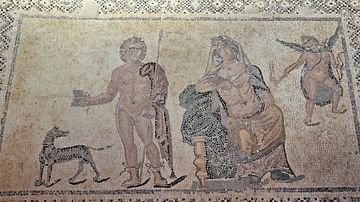
Definition
Phaedra
Phaedra is a princess of Crete and the wife of the Greek hero Theseus in Greek mythology. She is one of the main characters in Euripides' (c. 484-407 BCE) Greek tragedy Hippolytus, which recounts how her love for Thesesus' son Hippolytus...
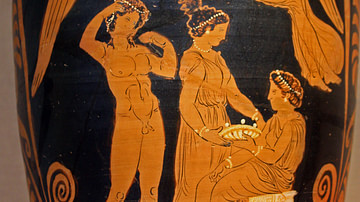
Definition
Hippolytus
Hippolytus is a tragedy written by Euripides (c. 484-407 BCE), one of the great Greek playwrights of the early 5th century BCE. As with many tragedies of the era, the central focus of Hippolytus is humanity's relationship with the gods. Hippolytus...
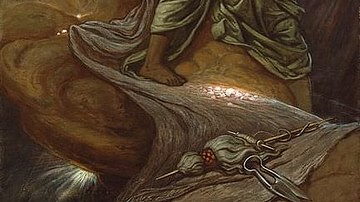
Article
Hercules and Alcestis: Personal Excellence & Social Duty
For the ancient Greeks, the quality of arete (personal excellence) and the concept of eusebia (social duty) were most important. Aristotle discusses both of these at length in his Nichomachean Ethics and relates arete to eudaimonia - translated...
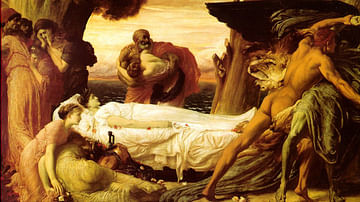
Definition
Alcestis
Alcestis was the mythical queen of Thessaly, wife of King Admetus, who came to personify the devoted, selfless, woman and wife in ancient Greece. While the story of Admetus' courtship of Alcestis was widely told, she is best known for her...
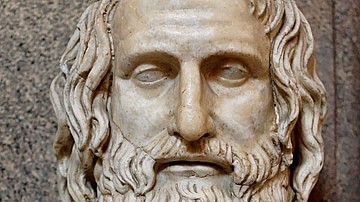
Definition
Euripides
Euripides (c. 484-407 BCE) was one of the greatest authors of Greek tragedy. In 5th century BCE Athens his classic works such as Medeia cemented his reputation for clever dialogues, fine choral lyrics and a gritty realism in both his text...
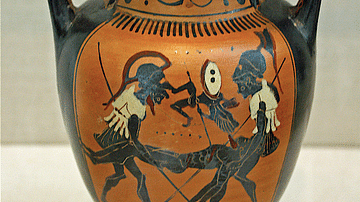
Definition
Thanatos
Thanatos is the personification of Death in Greek mythology. He is the son of Nyx (Night) and the twin brother of Hypnos (Sleep). Some sources also name Erebus (Darkness) as his father. As the personification of Death, Thanatos works under...
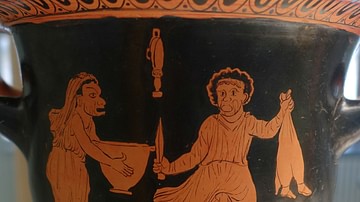
Definition
Thesmophoriazusae
The Thesmophoriazusae (also called The Poet & the Women or Women at the Thesmophoria) is a two-act comedy play written in 411 BCE by the great Greek comic playwright, Aristophanes. The play's principal focus is on the Greek tragedian...

Definition
Helen (Play)
Helen is a Greek tragedy by Euripides (c. 484-407 BCE). It is usually thought to have first been performed at the Great Dionysia of 412 BCE and was part of the trilogy that included Euripides' lost Andromeda. Helen recounts an unusual version...
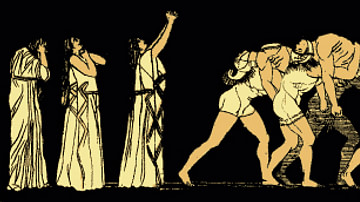
Definition
Suppliants by Euripides
The Suppliants (also given as Suppliant Women) is a Greek tragedy written by Euripides, not to be confused with Aeschylus' tragedy of the same title. Its exact date of production is not known, possibly around 424 to 420 BCE, and may have...
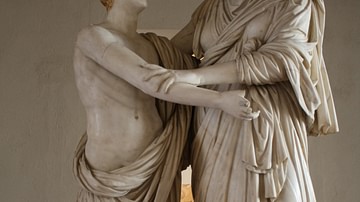
Definition
Electra by Euripides
Electra is a Greek tragedy written by the playwright Euripides c. 420 BCE. It retells the classic myth concerning the plotting of Electra and her brother Orestes to kill their mother and her lover. This version of the story should not be...